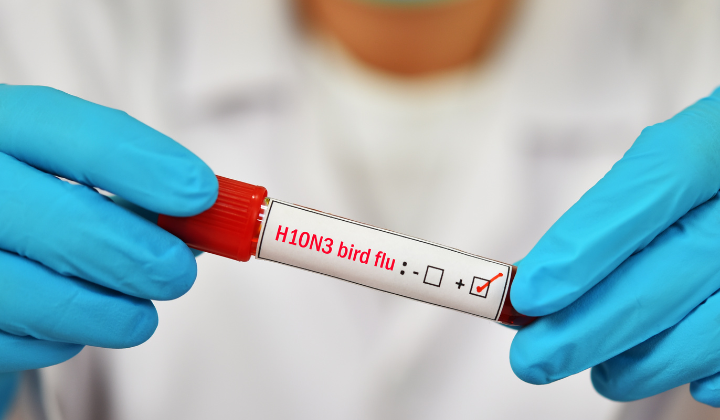
– Manuscript –
Some of the world’s leading vaccine makers are developing bird flu shots to prepare for possible outbreaks of the sickness in humans.
Bird flu, or avian flu, is officially known as H5N1. The virus usually spreads among different kinds of poultry. Human infections remain very rare. But most human cases have been linked to direct contact with infected birds.
Now, several large vaccine developers are working on bird flu vaccines to prepare for the possibility that the virus could one day jump to humans.
One current outbreak involves an avian flu version that has already killed record numbers of birds and some other infected animals.
Officials at three major vaccine manufacturers told Reuters news agency they are already developing and preparing to test vaccines to protect against new bird flu variants. The companies include Britain’s GSK and CSL Seqirus and U.S.-based Moderna. Other vaccine makers told Reuters they “stand ready” to begin production efforts for bird flu if necessary.
In addition, there has been a push among companies to develop a vaccine to be given directly to poultry. Such a market could be much larger than the one for humans.
Vaccine company officials told Reuters that hundreds of millions of bird flu shots could be manufactured within months if a new variant of the virus starts spreading among humans.
Health experts have noted, however, that most new vaccine treatments for avian flu would be set aside for wealthy nations that already have existing contracts with shot makers.
Many countries have pandemic plans in place that call for giving vaccines to the most vulnerable people first while supplies are limited. But during COVID-19, many vaccine-rich countries vaccinated large parts of their populations before considering sharing shots.
Dr. Richard Hatchett is chief executive of the Coalition for Epidemic Preparedness Innovations (CEPI), an organization that helps finance vaccine research. He told Reuters that possible human bird flu outbreaks could lead to even greater “hoarding and vaccine nationalism” than during the COVID-19 pandemic.
An international agreement covering pandemic flu sets aside 10 percent of worldwide supply for the World Health Organization to share with low- and middle-income countries. But after the COVID-19 pandemic, the WHO has sought guarantees of 20 percent of the worldwide supply for use in other pandemics.
The WHO says it has signed legally-backed agreements with 14 manufacturers for 10 percent of their pandemic flu vaccine. The agreements call for the vaccines to be provided as a mix of donated shots and those to be bought by the WHO. The agreements include six of the largest seasonal flu manufacturers, such as GSK, Sanofi and CSL Seqirus, the WHO said.
The WHO did not comment on possible vaccine hoarding during a flu pandemic. But it said policies were being developed “so that countries can work together – not in competition with each other” to respond to such a crisis. The WHO said it was “fully confident” that manufacturers and member states would follow the policies.
Words in This Story
poultry – n. chickens and other birds that people breed for meat and eggs
vulnerable – adj. able to be hurt or at risk of being harmed
hoard – v. to collect and store a large supply of something, often secretly
confident – adj. sure about your ability to do things well
*This article has been edited and reprinted from VOA Learning English with permission from Voice of America (VOA) for use in English language materials.
